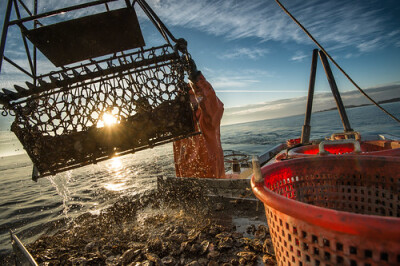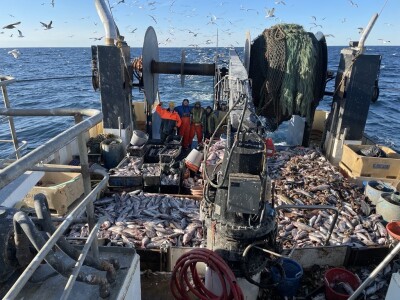The law that underpins federal fishing policy in the U.S. is currently in the process of being revised by Congress. The Magnuson-Stevens Act was passed in 1976 with the aim of protecting U.S. federal waters from foreign competition. The goal has been to try and improve the sustainable management of fisheries through the introduction of science-based catch limits. Tom Porter takes a look at what revisions Maine fishermen and scientists want to see from Washington.
"The idea of having science-based catch limits is really at the heart of what the act is trying to accomplish," says Jud Crawford, of the Pew Charitable Trust's Northeast Fisheries Program.
Crawford says you cannot harvest a wild animal population without knowing how much needs to be left intact to replenish the numbers, and that's what the Magnuson-Stevens Act has done.
"The Act has been successful," he says. "It has made a series of changes through the reauthorizations that have made it increasingly effective."
One man who can remember life as a commercial fisherman before Magnuson is Jim Odlin. From offices on Portland's fish pier, Odlin owns and operates a number of groundfishing vessels - both in Maine and in Massachusetts. As a teenager back in the 1970s, he fished regularly in federal waters.
"I have distinct memories - with my first fishing boat I was around 18, 19 - of running through a fleet going towards Brown's Bank, and there was a hundred foreign ships," Odlin says, "so many foreign ships that it lit the sky up like you were going into Boston."
These ships - many of them Russian - hauled everything out the ocean that they could, says Odlin. So when Congress passed Magnuson-Stevens, and effectively kicked out the foreigners, fishermen like him were relieved.
But 27 years later, Odlin says, the New England groundfish fleet has shrunk, from about 1,200 active vessels down to less than 400, only about 10 percent of which are in Maine. Entire fishing ports, he says, have effectively disappeared.
Read the full story at Maine Public Broadcasting Network>>






